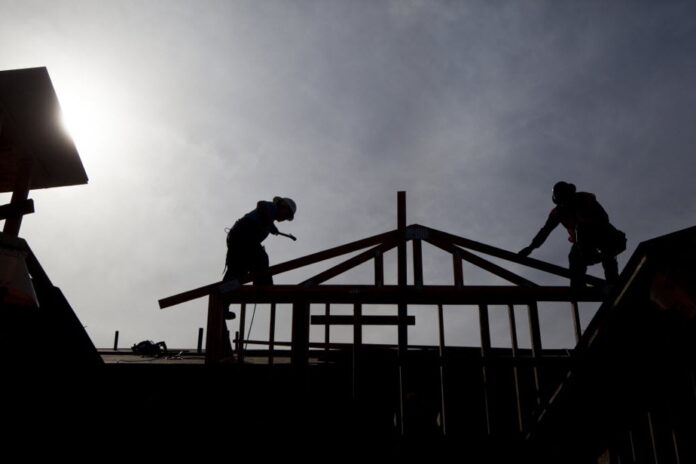The months follow one another and are similar in terms of housing starts. With rising interest rates, residential construction is slowing down. June was no exception. The Montreal area even had its worst June in 25 years, reports an association of home builders.
The Canada Mortgage and Housing Corporation (CMHC) counted only 908 housing starts in the Montreal area in June, a tumble of 71% compared to 3,110 new homes in June 2022.
In Quebec, 2,897 dwellings emerged from the ground last month, down 44% from the figures of 12 months ago. “This is a 10th consecutive monthly decline and a 12th setback in the past 13 months,” writes the Association of Construction and Housing Professionals of Quebec (APCHQ) in its Bulletin de l dwelling published on Tuesday.
In June, housing construction fell in five of seven census metropolitan areas (CMAs). Only Gatineau, with 427 units, and Trois-Rivières, with 277 units, saw an increase in housing starts.
The portrait of the first half of the year is clearly negative. At a time when there is a lack of available housing, which translates into high rents and purchase prices, the number of housing starts has fallen by 48% compared to the first half of 2022.
Of all the sectors studied, it is in the Montreal and Drummondville regions that the decline in new homes is the most marked, with a slide of 58% in one year. From January to June, the foundations of 5,927 units were poured in the Montreal CMA, compared to 14,110 during the same period last year.
As to why Montreal is suffering more than other regions of Quebec, Mr. Cardinal has no definitive explanations to give, but points to the considerable decline observed in the construction of collective housing (condos and rental apartments). Housing starts fell from 13,038 units to 5,439 in one year, again a drop of 58%.
“It’s still the rental that drags the leg, said the economist in an interview. It is certain that in Montreal, economic rents are higher than elsewhere. The economic rent corresponds to the monthly amount that the promoter must ask to make a new construction profitable.
Mr. Cardinal also points to the marked deterioration in housing affordability, which he says is holding back the construction of owner-occupied housing.
The RBC Affordability Index in the first quarter was revealing in this regard: “Montreal buyers have never been subjected to such difficult conditions”, wrote in March the economist of the banking institution, Robert Hogue. The fault lies with the rise in mortgage rates and high property prices.
In Q1 2023, RBC’s overall metric was near its highest level ever (51.9%).
A rare positive to take from CMHC data on housing starts in Quebec, the pace of construction accelerated in June compared to May, according to seasonally adjusted and annualized data (SDA). These seasonally adjusted data allow comparison of consecutive months. The annual rate of housing starts in Quebec went from 21,309 in May to 25,049 units in June, an acceleration of 18%.
However, medium-term prospects look mixed. Sales of land for residential purposes were timid in May, before picking up in June in the Montreal area. Land sales occur approximately 18 months ahead of housing starts.
According to the firm Landerz, which analyzes this type of transaction, sales of land for residential purposes amounted to 75.6 million in May, then to 98.3 million in June in the territory of the Metropolitan Community of Montreal.
For the island of Montreal, there were 37.4 million in transactions in the last days of May and 43 million in June. Recall that there was no residential land transaction on the island in April.















